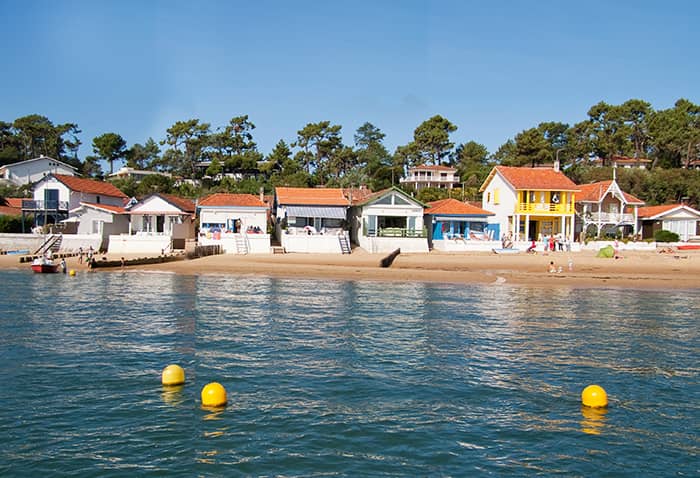How to Get the Most When Investing in a Vacation Home to Rent (VIDEO)
With the housing market down in Los Angeles, now may be a good time to think about buying a second home like a vacation home. Investing in real estate still can be profitable. Not only are the current prices low but also if you can turn it into a rental, you could end up making a monthly profit on the home – depending on how much it is rented.
To get the best possible deals, check with the banks for a listing of foreclosed properties. Just be careful of the condition that some of these properties may be in. Since it would be much riskier to invest in real estate with the idea of flipping for a profit right now, keeping a property long-term as a rental is ideal. When the market goes back up you can decide if you want to hold on to the rental or sell for a profit at that point.
Pros and Cons Vacation Rental Investments – Video
To make your vacation home pay for itself, rent it out as often as possible. This doesn’t mean you won’t get to use it yourself. Vacation rentals can take in a high weekly rent, especially if the home is located in a prime area.
You may even want to consider buying a vacation home in another state where housing prices are extremely low such as Florida, California, and Arizona. Since these are also popular vacation areas, your potential for profit is greater, although hiring a property manager would probably be necessary and should be factored in. You will want to take advantage of this property as much as possible. Besides the income you will bring in from rent, there are some expenses that you can offset against this income.
Vacation Home Expenses
Deduct mortgage interest expense – you must use the home 14 days out of the year, for personal use, or 10% of the total days the home was rented out whichever is longer for the home to qualify as a second home.
You can only deduct the mortgage interest expense if your home qualifies. This is an expense that can be deducted regardless of the amount of rent you bring in, it is simply a second home expense. Obviously, there will be rental income to claim. You can deduct any expenses related to the property though at the percentage the home was used for a rental. So, if the home was rented 85 days in one year and you used it 15 days, the percentage would be figured at 85/99 (total days of use) or 86%.
If you have a net profit, you can deduct all of your expenses. If you have a net loss, you are limited. You cannot claim a loss over rental income but you can carry over the loss to the following year. This is because rental expenses cannot offset other areas of income.
Do Your Homework With the Bank
Before buying that cabin or cottage you fell in love with, it is important to do your homework. First of all, you will want to prequalify for a loan. There is no sense in getting emotionally involved if you don’t even qualify. Most banks or financial institutions have online mortgage applications. This makes it very easy to find out where you can get your best mortgage and rate. A low mortgage means more profit from rent.
Right now especially, you may be able to take advantage of some creative financing, maybe even some no-money-down options. With so many properties on the market, it doesn’t hurt to throw some crazy offers out there. If you are looking at a foreclosed property, chances are that a bank isn’t going to want to hold on to it. Property taxes are probably the next biggest expense after a mortgage. Make sure you know ahead of time what the taxes will be at a non-homesteaded rate.
Homeowners Insurance
Like banks, most insurance companies will give you an online insurance quote. Shop around for the best quotes. Along with homeowners insurance, you may also want to consider landlord’s insurance. This will protect you from damages incurred by renters or injuries that may happen on your property. Again, check online for an instant insurance quote.
Other things to consider are the utilities – how expensive is heating? Will you rent it year-round? Try to make an accurate estimate. Then there are advertising fees. Will you advertise on the web? In newspapers? Local bulletin boards are a good low-cost option. Do you need to make any repairs to the home you are buying? Make sure you include these expenses in determining the overall value of the investment. Maybe you got a great deal on foreclosure but if you have numerous repairs you may be better off with a different property.
Once you have all of your expenses figured out, check comparable vacation homes in the area. What are they getting for rent? What amenities do they offer? Now you are ready to start shopping for your perfect vacation home.
Variety Types of Vacation Homes and Rental Homes
A full-time rental home can bring you a nice steady monthly income. If the rent you bring in is the same or higher than all of your expenses, then it is a good investment. With home prices down and mortgage rates low, now is a good time to buy. Make sure the home is sound: One thing you do not want is to be sticking a lot of time and money into repairs. Make sure you have full inspections done and know what you are getting into. As a landlord, it will be your responsibility to keep up with repairs.
Renters: Interview, interview, interview! I know this from experience. This is not the time to become emotional with the family with four kids who desperately need a home and you have a two-bedroom place for rent.

